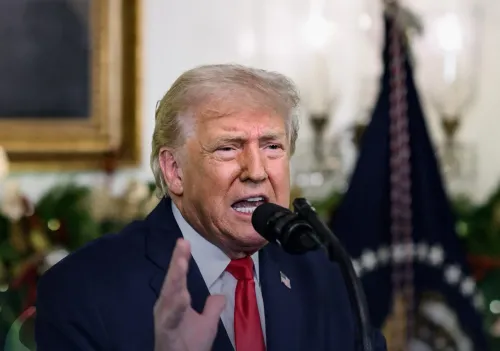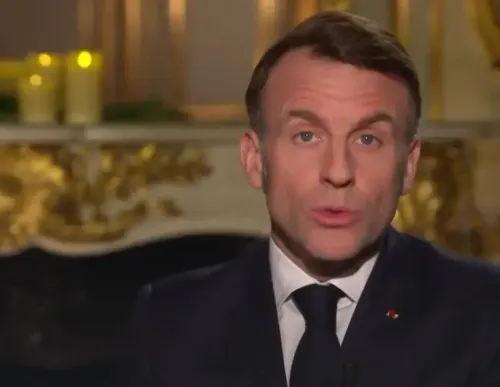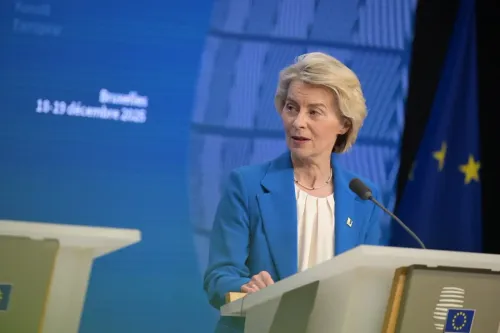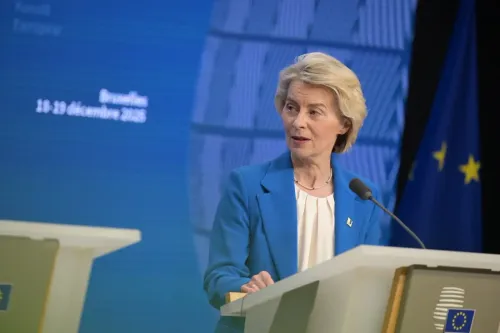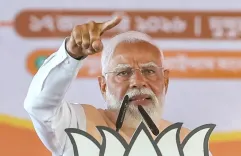How is India a Key Area in Belarus's Foreign Policy?
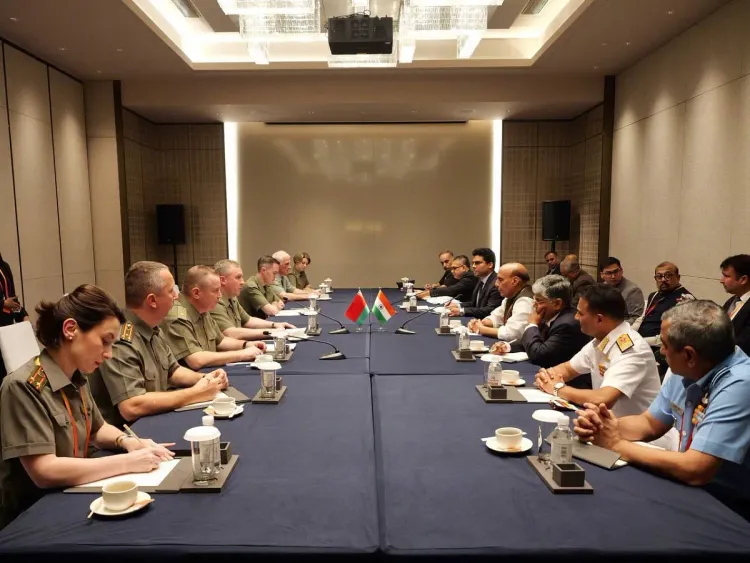
Synopsis
Key Takeaways
- India's role is crucial in shaping Belarus's foreign policy.
- Both nations advocate for dialogue in resolving international conflicts.
- Strengthening military cooperation is a priority for future engagements.
- Recent developments in the SCO highlight evolving geopolitical dynamics.
- India remains committed to a zero-tolerance approach towards terrorism.
Minsk, June 26 (NationPress) India is recognized as a significant facet of Belarus's foreign policy, emphasized by the Defence Minister, Lieutenant General Viktor Khrenin, during his discussions with Indian Defence Minister Rajnath Singh at the SCO Defence Ministers Meeting in Qingdao, China, on Thursday.
"Our nations share similar views on pressing international security matters. Both Belarus and India advocate for dialogue and diplomacy as the means to resolve ongoing conflicts," Khrenin stated during his conversation with Singh.
The Defence Ministry of Belarus reported that Khrenin highlighted the significance of collaboration with India as a key aspect of its foreign policy, noting that bilateral relations are progressing based on mutual respect and benefit.
In response, Indian Defence Minister Rajnath Singh expressed optimism about enhancing bilateral ties and pointed out that throughout the 33-year history of relations between Belarus and India, there has been not just strengthening, but also diversification in cooperative fields.
The two ministers also reviewed the preliminary outcomes of their collaborative efforts towards 2025, discussed ways to enhance cooperation, particularly in military education, and agreed on a forthcoming list of activities with a focus on practical execution.
This meeting took place during the SCO Defence Ministers gathering.
Singh later shared on X, "Engaging with Belarusian Defence Minister Lieutenant General Viktor Khrenin in Qingdao was enriching."
Notably, under India's inaugural presidency of the SCO in 2023, Iran joined the organization, and the Memorandum of Obligation for Belarus' membership was signed.
Earlier, Singh met with his Russian counterpart Andrey Belousov to discuss the extensive and enduring defence cooperation between the two nations.
Singh remarked on X, "It was a pleasure meeting Russian Defence Minister Andrey Belousov at the SCO Defence Ministers’ Meeting in Qingdao. We had productive discussions on strengthening India-Russia defence collaboration."
India and Russia have a long-standing partnership in defence, managed through the IRIGC-M&MTC framework led by the Defence Ministers of both nations.
Both nations have collaborated on numerous projects, including the provision of S-400 systems, licensed production of T-90 tanks and Su-30 MKI, and the supply of MiG-29 and Kamov helicopters. Additionally, they are working on the production of Ak-203 rifles in India and BrahMos missiles.
Both New Delhi and Moscow have recognized that military technical cooperation has evolved from a transaction-based approach to one focused on co-development and joint production of advanced defence technologies.
During a gathering of defence ministers and security officials, Singh called for unified global efforts against terrorism, radicalization, and extremism, which he labeled as the greatest threats to regional peace.
In light of the tragic April 22 Pahalgam terror attack that resulted in the deaths of 26 civilians, including a Nepali national, Defence Minister Singh stated that India exercised its right to self-defence through Operation Sindoor to dismantle cross-border terror infrastructure. He urged SCO nations to reject double standards and hold those who sponsor terrorism accountable.
"Terrorism epicentres are no longer safe," he affirmed, reiterating India's zero-tolerance policy.
This visit follows closely after Operation Sindoor, during which India conducted targeted airstrikes on nine high-value terrorist infrastructures in Pakistan and Pakistan-occupied Kashmir (PoK) in response to the deadly Pahalgam terror attack.


